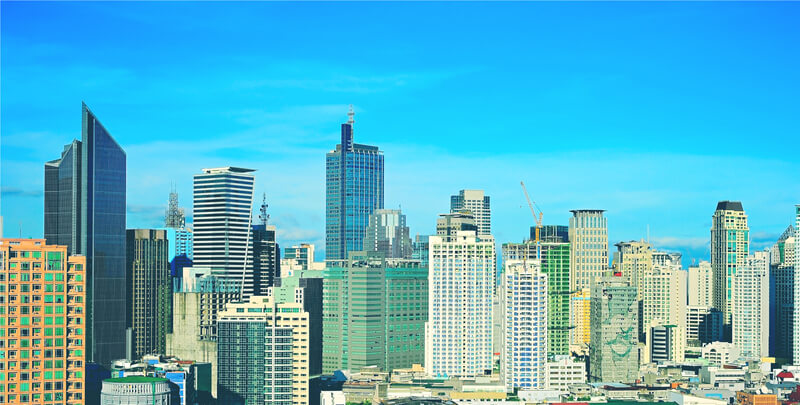Pty Ltd: What It means for Australian businesses
Learn what does PTY LTD mean in Australia and how it compares to other business structures. What are theequirements to start a PTY LTD in AU? Find out more!

A 2012 census in the Philippines found that an average of 13,311 new businesses had opened annually since 2006. Driven by the growing economy - especially in the services industry - this expansion is attracting more and more foreigners who want to start their own enterprise in the Philippines.
If you’re attracted by the lure of the climate and culture, plus the potential business opportunity, there are some things you need to know. Here’s a handy guide to starting a business in the Philippines.
There are several different types of corporate entities commonly used in the Philippines. You could choose:
A sole proprietor structure means that you're personally responsible for any liabilities incurred as part of your business. However, you also get full benefit of any profit. In effect, your business and personal interests are considered as one entity.
As a partnership, your business is a separate legal entity to yourself. You can choose a structure with limited or unlimited liabilities. For larger partnerships, you must register your interests with the Securities and Exchange Commission.
To open a corporation you must have at least five shareholders and stake a minimum amount of capital. However, the liability of shareholders is then capped at the total amount of their invested capital. To open a corporation you must register with the Securities and Exchange Commission.
If you already have a business operating outside of the area, and wish to expand to the Philippines, you have other options. It might be better, for example, to open a local branch office or a representative office. Both options have certain requirements, such as minimum turnover and capital levels.
If you want more information on Philippine business structures, you can find great resources on their government website.
You can compare the administration needed to start a business in the Philippines, with that in other countries, on the website of the World Bank's 'Doing Business' report. This helpful site summarises some of the main legal and bureaucratic steps you'll need to take when starting your new venture.
Don’t forget that there are some charges for registering your business, and you may incur legal fees for processes such as notarising documents. The charges vary depending on the business type, and you might need to invest a set minimum amount.
It’s also worth remembering that the documentary requirements when you open a business vary slightly depending on whether you're Filipino or a foreigner. Make sure you have the correct list for your circumstances. All documents are required to be submitted in multiple copies, so make sure you take enough to the office when submitting them.
Opening a business in the Philippines will require a bit of patience. The ‘Doing Business’ report lists some 16 administrative steps, and while many of these can be completed online, it's not a quick process. Be prepared.
A full list of the places you need to register appears on the Official Gazette page, which is hosted by the government of the Philippines. You'll need to search for and then register your chosen company name on the Business Name Registration site. To do this, you'll submit three preferred names in case the first choice is already taken. There are various fees totalling up to 5000 PHP depending on the business type. The certificate, once you have received it, is valid for five years.
The process after registering the name then depends on the type of business structure you have chosen. You can expect to have to register your business with the Department of Trade and Industry, Bureau of Internal Revenue, Local Barangay Office and the Social Security System. You may also need a mayor's business permit, and other permits depending on the type of sector you're working in. Documents can be downloaded online but you may still need to visit the offices of the relevant authorities in person in some cases.
To register a sole proprietorship you'll need to submit documents such as:
To register a partnership you'll need the name registration certificate along with articles of partnership, signed by at least two directors. You may also need further permits depending on the type of business you intend to open.
To register a foreign owned company you'll need the name registration certificate and other documents, including:
The process to register your business in the Philippines could take some time. Although all of the individual steps can be done fairly quickly, there are several stages to pass through before you can trade. It's important that you understand the requirements to open the type of business you want to, and take local advice if you need it.
If you have employees you must register with the Philippine Health Insurance Corporation. Under this scheme the employer pays a fixed amount for each employee into a health insurance fund, which is used in case the employee is sick or injured.
You're also responsible for paying tax for your business, and withholding contributions from employee salaries where needed. A full list of all possible applicable taxes can be found on the Doing Business website. However, not all of these taxes will be relevant to every business.
You might find useful information or advice on the website of the Philippine Centre for Entrepreneurship. Here there are details about financing and growing your business in the Philippines. There are also a number of startup accelerator programs operating in the Philippines which could be suitable for your business.
To help you build a network among other business owners, you could join a relevant association, such as the Women's Business Council or the Philippines Franchise Association.
Once you’re in the Philippines and ready to get going, look for local networking events on sites such as Meetup, Eventful and Eventbrite. Here you can meet like minded people and build your customer and business contact book. With the help of networks and the sources in this guide, you’ll have your business off to a bright start.
*Please see terms of use and product availability for your region or visit Wise fees and pricing for the most up to date pricing and fee information.
This publication is provided for general information purposes and does not constitute legal, tax or other professional advice from Wise Payments Limited or its subsidiaries and its affiliates, and it is not intended as a substitute for obtaining advice from a financial advisor or any other professional.
We make no representations, warranties or guarantees, whether expressed or implied, that the content in the publication is accurate, complete or up to date.

Learn what does PTY LTD mean in Australia and how it compares to other business structures. What are theequirements to start a PTY LTD in AU? Find out more!

If you’re on the hunt for a suitable business credit card in Australia, there are several offerings available. A mutual or ‘customer-owned’ bank, Heritage...

If you’re a business owner in Victoria seeking a low-rate business credit card solution, Bank of Melbourne (BOM) may be worth considering. Existing...

If you run a business that deals with international trade, you know the importance of finding a service provider that makes international payments and foreign...

If you’re the owner of a business or run the finances of one, you might be considering business debit cards. These cards are usually connected to the...

Whether you have your own business already, or are looking to start one, there might be a time where you may need to seek out overseas suppliers to fulfil...